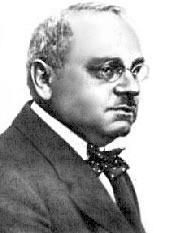Alfred Adler was an Austrian psychotherapist who lived from 1870 to 1937.
He began his career as an ophthalmologist, and later became a general practice physician.
Still later, he decided to switch to psychiatry, and became a follower of Freud.
In 1923, Adler wrote The Practice and Theory of Individual Psychology, in which he expounded on his theory of Individual Psychology. This theory says that a human being’s main priority is to maintain control over their life.
Adler said that when you are a child, you are helpless and feel inadequate. You don’t have a choice about what your life as like. As you grow older, you gain more and more power over yourself and the situation in which you live. You develop desires to be successful in different areas of your life; you create goals for yourself and work toward achieving them.
According to Adler, everybody has an image of what they would be like if they were perfect and their lives were perfect. While Freud thought that the conscious and the unconscious worked separately and had separate goals, which could be antagonistic to one another, Adler thought that the conscious and the unconscious work together to help you achieve your goal of personal perfection.
 Adler thought that when you dream, your unconscious is creating a way for you to deal with a problem without your having to face upsetting emotions and thoughts in waking life. He wrote of a man who was having problems with his marriage and was starting to have trouble trusting women. The man dreamed that there was a battle in a city. During the battle, many women were thrown into the air, as though they were victims of an explosion. Adler thought that this dream was a way for the man to express the conflicting feelings and thoughts that he was having about his marriage without having to acknowledge them in waking life. Once the man understood the meaning of the dream, he was able to recognize his conflicting thoughts and emotions and deal with them in waking life.
Adler thought that when you dream, your unconscious is creating a way for you to deal with a problem without your having to face upsetting emotions and thoughts in waking life. He wrote of a man who was having problems with his marriage and was starting to have trouble trusting women. The man dreamed that there was a battle in a city. During the battle, many women were thrown into the air, as though they were victims of an explosion. Adler thought that this dream was a way for the man to express the conflicting feelings and thoughts that he was having about his marriage without having to acknowledge them in waking life. Once the man understood the meaning of the dream, he was able to recognize his conflicting thoughts and emotions and deal with them in waking life.
Unlike Freud and Jung, who thought that dreams had generic symbols that could mean the same things to different people, Adler thought that the meaning of something in a dream depended completely on the individual dreamer.
While Freud thought that the meaning of a dream depends on internal factors, such as repressed sexual feelings, Adler thought that external factors, such as economics, politics and social roles, could have a significant affect on the meaning of dreams. This is because external factors play an important part in determining how close you can get to achieving your goals. For example, physical disability, abuse, poverty or societal prejudice can prevent you from achieving the things that you wish to achieve and being the person that you want to be.
Adler developed the concept of the inferiority complex. In 1907, he wrote a book called Study of Organ Inferiority and Physical Compensation, in which he discussed the way that people compensate for having weak body organs by making the surrounded body organs work harder. Adler thought that when someone believes that they are physically or psychologically inferior in some way, they usually try to find ways to compensate for that so they can continue to reach their goals.
Sometimes, however, someone will come to believe that no matter what they do, they will never be able to overcome their disabilities. When they fail at something, they become completely discouraged and give up trying. This person has developed an inferiority complex. Adler believed that giving someone negative messages about their abilities could cause them to develop an inferiority complex.
Because, according to Adler, dreams are a way for the dreamer to deal with problems that they were not willing to deal with in waking life, Adler thought that people who had the courage to face their problems when they were awake do not have many dreams. He also thought that people with inferiority complexes do not have many dreams, believe it is hopeless to try to solve their problems at all. They have accepted their negative situations and don’t want to do anything about them. Adler said that sometimes, however, people who don’t dream very much simply don’t have much imagination.
